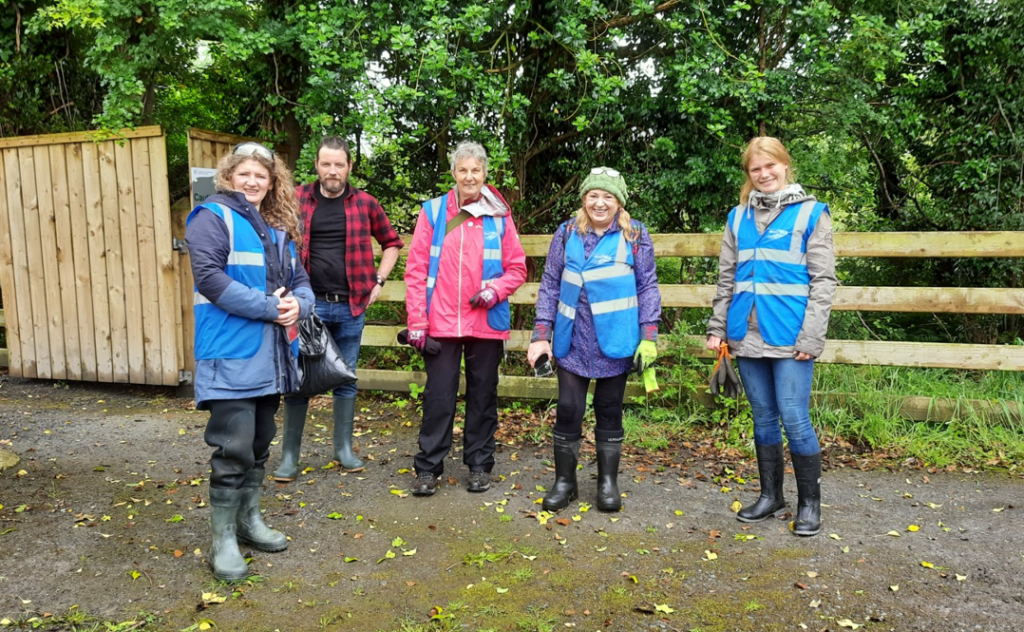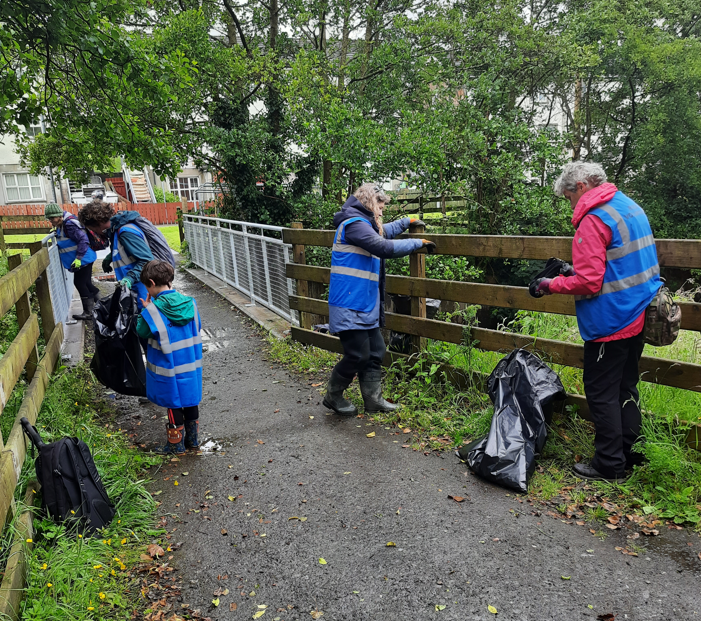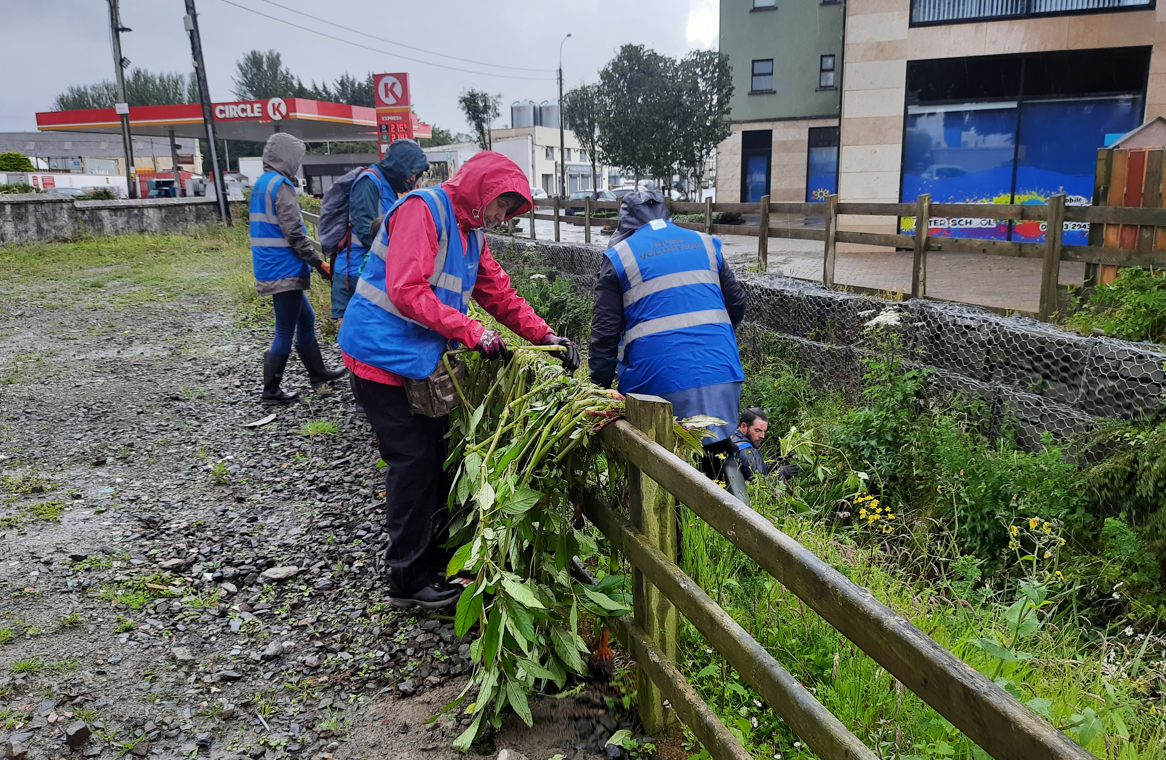The ECO Carn Network and the Inishowen Rivers Trust are calling in the public to join them as they increase their efforts in their fight against invasive species in Carn.
Japanese Knotweed, Himalayan Balsam and Winter Heliotrope have been identified as the most problematic invasive species in Carn, following a comprehensive audit by the ECO Carn Network after its formation in 2019.
ECO Carn, which is a collaborative network of community organisations, including Spraoi, Donegal County Council, Carn Community School, Barrack Hill Community Garden, Scouts, and others and is supported by Inishowen Development Partnership and Inishowen Rivers Trust, who were awarded the contract to work with ECO Carn.
Last month, the IRT and ECO Carn ran a public workshop to share information on their plans with the wider public and held a Balsam Bashing event which concentrated on the Himalayan Balsam along the Donagh River.
The next workshop, which will be held at the IDP office in Carn on the 10th of August, will focus on natural solutions for dealing with Japanese Knotweed.
A spokesperson for the ECO Carn Network said one of their key objectives is to try and tackle the problem with invasives around Carn using natural based solutions.
“We want to raise awareness of the issues with these species within the community but also to provide training to the general public on how to monitor and manage the species in a natural way,” they said.
Trish Murphy, Inishowen Rivers Trust, outlined how these species, particularly Japanese Knotweed and Himalayan Balsam, are considered to be the greatest threats to our native biodiversity.
“Both species occur widely in the Carndonagh area, particularly on and close to waterways which facilitates easy transfer of the plants,” she said.

Trish Murphy from IWT along with ECO Carn volunteers at the Balsam Bashing event along the Donagh River
A number of actions have already been delivered, with additional funding being secured from the Community Foundation of Ireland. However, IRT and ECO Carn plan to develop even further by creating signage, information points and QR codes at key sites.
“This project aims to reduce the impact of these species on our biodiversity by creating awareness in the local community of local habitats and the impacts of invasive species on local ecology,” said Denise McCool, IDP, who are supporting the roll out of the project.
“With the help and guidance of IRT we are taking a collaborative approach to tackling the issue of invasives through workshops that identify sustainable solutions and support behavioural change; reducing the use of herbicides through awareness raising and highlighting the impacts on our health, drinking water and air quality; and reducing the quantity of invasive species in the area.”

Anyone who is interested in attending the workshop on dealing with Japanese Knotweed is welcome, in particular landowners who may have invasives on their land. To book a place, email rachel@inishowen.ie or call IDP on 074 9362218.
You also can find out more by visiting the IDP stand at the Clonmany Agricultural Show on the 2nd of August. Inishowen Rivers Trust will also be there and will be involved in talks within the Helping Nature Locally programme.
People who find invasives locally around Carn are encouraged to submit the records online via the Inishowen Rivers Trust website on www.inishowenriverstrust.com/invasive-alien-plants.
Tags:







